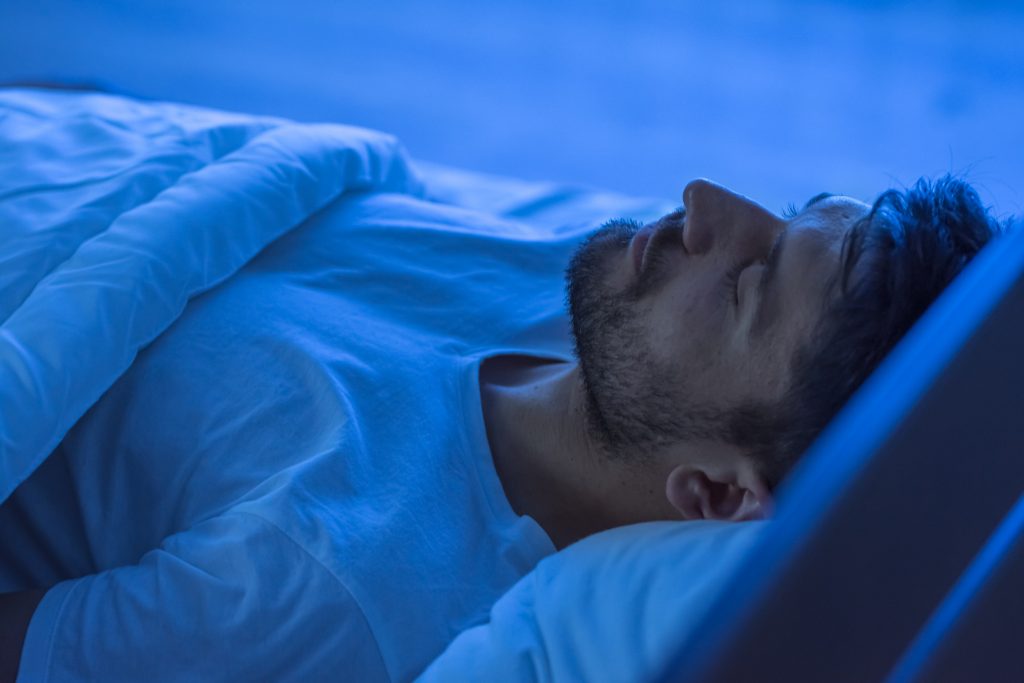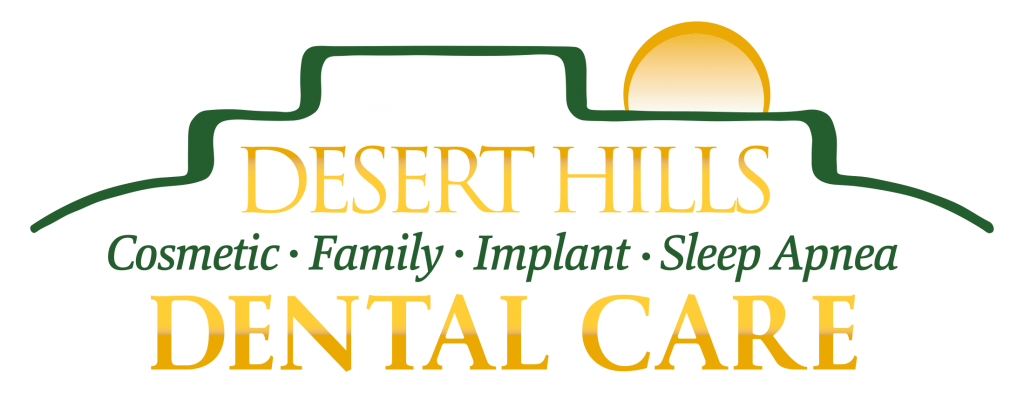Improve Your Health With Quality Sleep
Everyone deserves a good night’s rest, however, if you’re suffering from snoring or sleep apnea, you may not be getting the rest you need. When we sleep, our bodies and brains have time to reset, allowing us to have energy the next morning. However, when we’re deprived of sleep, it can negatively affect all of our bodily systems as well as our cognitive function.
At Desert Hills Dental Care, our Farmington dentist Dr. Schumacher offers highly effective treatment for our New Mexico patients in Bloomfield, Aztec, Upper Fruitland, and the surrounding areas who are struggling with sleep apnea or snoring. Schedule a consultation today by giving our Farmington office a call at (505) 427-2936 or submit a request online.


What Is Sleep Apnea?
Sleep Apnea is a serious sleep disorder in which breathing stops and starts due to tissue blocking the airway. While the patient isn’t breathing, the oxygen in the blood begins to drop, which eventually causes the brain to trigger the body to briefly awaken and resume breathing.
Throughout the night, the patient will repeat this cycle numerous times. As the cycle continues, the amount of oxygen in your bloodstream begins to decrease and can lead to serious health problems. Luckily, Dr. Schumacher provides oral appliance therapy as a comfortable solution to treat your sleep apnea and reclaim the sleep you deserve.
Oral Appliance Therapy
Oral appliance therapy uses custom-made mouthguards to position your jaw in such a way that the airways remain open while you’re asleep. This makes breathing easier, helping to alleviate symptoms of snoring and sleep apnea.
Oral appliance therapy has many other benefits such as:
- Comfortable, professional fit
- Silence due to lack of electronic components
- Affordability
- Portability for better handling and travel purposes
- Simplicity of use and care
How Do I Know If I Have Sleep Apnea?
Many patients aren’t aware of the symptoms of sleep apnea and won’t recall waking up several times throughout the night. If you’re experiencing morning headaches, sore throat, or dry mouth you could be suffering from the sleep disorder. Additional symptoms include daytime fatigue, heavy snoring, irritability, restless sleep, and unproductiveness at work or school.


The Risks of Not Treating Sleep Apnea
When sleep apnea is left untreated, it can lead to many other health problems. Sleep apnea should be taken seriously as it can cause a greater risk for:
- Strokes
- Heart Attacks
- Diabetes
- Parkinson’s Disease
- Depression and anxiety
- High blood pressure
- Alzheimer’s Disease
- Reduced Libido
Frequently Asked Questions
How can I reduce my risk of sleep apnea?
Making certain lifestyle changes can significantly reduce your risk of sleep apnea. Dr. Schumacher provides some effective remedies such as:
- Maintaining a healthy weight
- Regular exercise
- Changing your sleep position, also referred to as positional therapy
- Using a humidifier to open your airways
- Avoiding smoking and alcohol consumption
Is sleep apnea life-threatening?
Sleep apnea isn’t known to be fatal, however, if left untreated it can lead to life threatening health issues. It’s important to seek treatment for sleep apnea as soon as possible.
What should I do if I think I have sleep apnea?
If you’re experiencing symptoms of sleep apnea, give our Farmington office a call at (505) 427-2936, and we’ll be happy to schedule a consultation with Dr. Schumacher. At this appointment, Dr. Schumacher will be able to assess and recommend proper treatment options.
Will insurance cover my treatment for sleep apnea?
Your medical insurance should cover the cost of your sleep apnea treatment since it’ll be medically necessary. Our Farmington practice still recommends contacting your provider to get an accurate understanding of your coverage and benefits. For further assistance, we encourage you to call us at (505) 427-2936 to learn more about our financing options.
Schedule a Consultation With Dr. Schumacher Today!
At Desert Hills Dental Care, we’re committed to offering quality treatment to our patients to improve their overall health. Don’t hesitate to schedule a consultation at our Farmington office by contacting us at (505) 427-2936, or requesting an appointment online. We’re dedicated to doing everything we can to give you the rest that you deserve.
